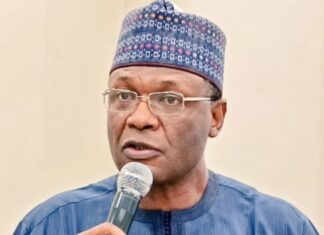One of the promises of President Muhammadu Buhari during electioneering is to declare his assets and liabilities to stimulate other political appointees to do same.
Political pundits note that since the president has declared his assets as promised, he remains the second Nigerian president after Alhaji Umaru Yar’Adua, to have done that.
They insist that the aptness of the public declaration of assets by Nigeria’s public officers has a long and rich history even before the nation returned to democratic rule in 1999.
According to them, the 1999 Constitution and the Code of Conduct Bureau (CCB) and Tribunal Act are empowered to receive, verify, examine and keep in custody such asset declarations to enforce compliance when necessary.
“Specifically, sections 52, 94,140 and 185 of the 1999 Constitution require a mandatory duty on a wide range of public officers, including members of the federal and state legislatures and the executive, to declare their assets and liabilities,’’ they observe.
They, however, argue that the responsibility of determining how and what terms of asset declaration will be made accessible to the public is left to the National Assembly.
Stressing the importance of asset declaration, Mr Sam Sanga, the Chairman of CCB, said it could check corruption among public office holders.
“One of the greatest challenges the country has faced over the years is corruption which has become a prevalent problem that should concern all Nigerians,’’ he said.
He spoke at a roundtable on: “Access to Asset Declarations of Public Officers’’ recently held in Abuja by the European Union in conjunction with the United Nations Office on Drug and Crime and CCB.
“The rot corruption has impacted on our society is wide spread, affecting the entire socio-economic development and it must be tackled before the nation can move forward,’’ he said.
He said that the idea behind the establishment of CCB was for the purpose of maintaining a high standard of morality in the conduct of government business to check corruption.
Sanga, nonetheless, argued that for the administration of asset declaration to be effective, stakeholders must address the issue of disclosure of such declarations to the public.
“Asset declaration should be seen as a tool for scrutinising the wealth of public officials to see if they are living above their earnings.
“It should rather be seen as a tool for the purpose of increasing public confidence in government and their public leaders who show integrity and accountability,’’ he said.
He argued that if asset declarations were accorded high protection without any form of disclosure to the public, then the Freedom of Information Act would be contravened.
“Yet, we cannot ignore the fact it could be dangerous when wrong persons in the public are holding information on ones, properties, bank accounts, phone numbers, date of birth, family members and other financial instruments.
“Such information in the wrong hands could be very threatening, considering the wind of insecurity and kidnapping that have been sweeping the country in the past few years,’’ he observed.
He, however, suggested a bill that would specify on what terms of asset declarations could be made public to make asset declaration effective in the fight against corruption.
In his view, Mr Godwin Obla, a legal practitioner and Senior Advocate of Nigeria, noted that the legal setting appeared to favour the preservation of the privacy and secrecy of assets declaration details.
He also observed that not until in 2007 when the late President Yar’adua publicly declared his asset that the debate on it started gaining awareness.
In spite of this, he noted that “the ability of the citizens to access information and knowledge about the assets held by public officers is indispensable to the promotion of probity, transparency and accountability.
“This is of significance in the nation’s fight against corruption, especially given Nigeria’s less-than-enviable history of corruption and embezzlement in public service.’’
He urged stakeholders to preserve the capacity of asset declaration as a vital component of anti-corruption drive.
He suggested the introduction of a bill to grant the average tax-paying citizen the right to access information on the assets of public officers.
According to Obla, if the bill is signed into law, it can make a significant paradigm shift in the fight against corruption.
“Public accountability through the active involvement of the citizenry is the bedrock of any sane society.
“The obligation to impose it on the political class and public service is at the heart of fairness and equity in any society.
“It is expedient and of utmost importance to engage the citizenry in the process of asset declaration,’’ he insisted.
Insisting that the present administration would lead by example, Malam, Garba Shehu, the Senior Special Assistant, Media and Publicity to the President, said that asset declarations of the president and Vice President Yemi Osinbajo would be released to the public after due verifications by CCB.
“As required by law, the declaration and submission of documents to the CCB have been made, but there still remains the aspect of verification which the bureau will have to conduct to authenticate the submissions made to it.
“It is only after this verification exercise, and not before, that the declaration can be said to have been made and validated; and only after this, will the details be released to the public,’’ Shehu explained.
All in all, economists agree that an effective income and asset declaration regime can prevent abuse of power, reduce corruption and increase public accountability, public trust in institutions and government legitimacy.














